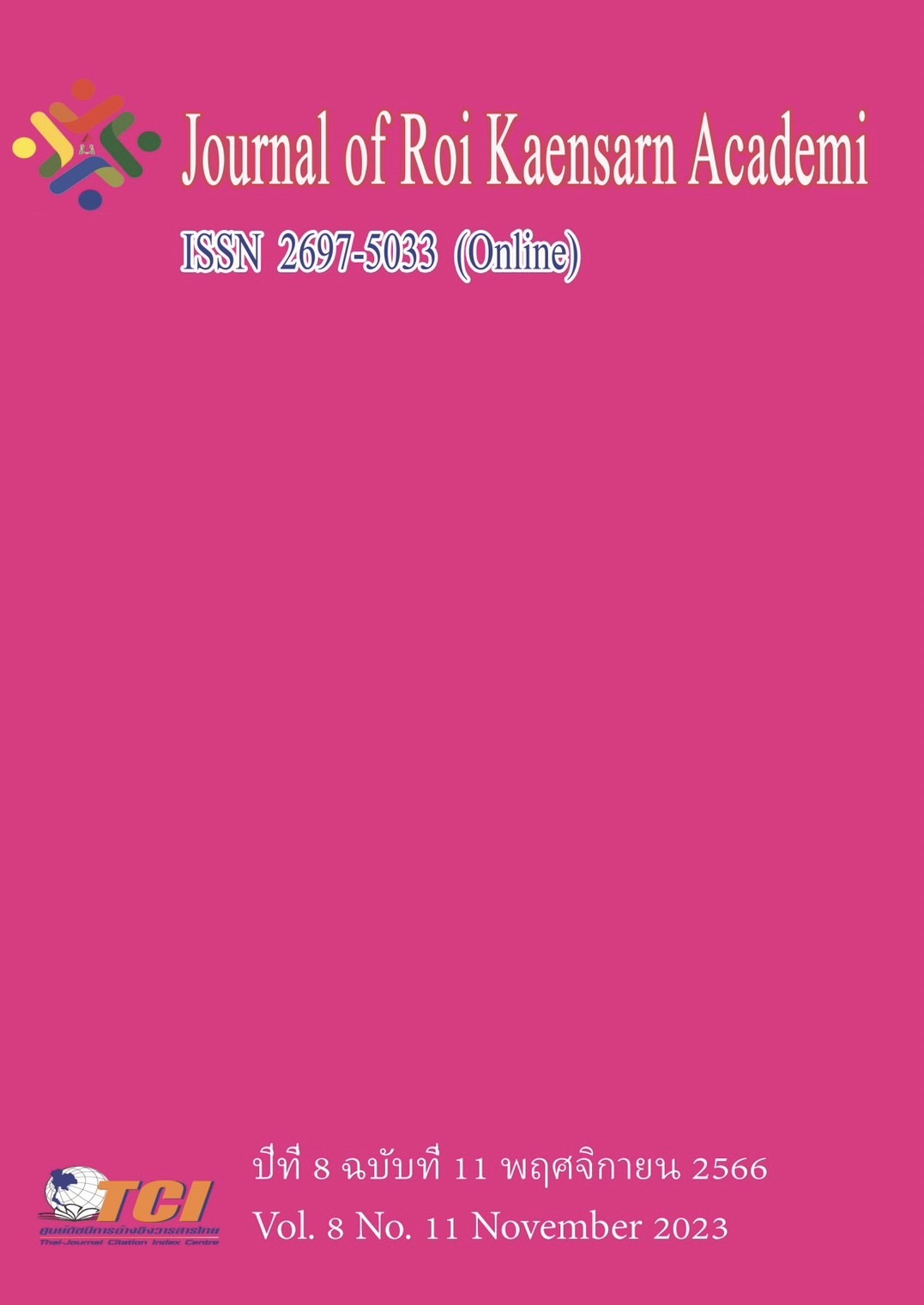The Development of Issue-centered Teaching Model based on Radical Constructivism Theory to Improve Students' Critical Thinking Ability
Main Article Content
บทคัดย่อ
The purposes of this study are 1) investigate the current situation of critical thinking among college students; 2) Developing issue-centered teaching model based on radical constructivism theory to enhance critical thinking among college students; 3) Evaluate the effectiveness of teaching models. The population groups for this study are: 1) 15000 students from Guangxi Arts University, 2) 3000 senior students. The sample groups for this study are: 1) 478 students who participated in a questionnaire survey, 2) 32 senior students who participated in a quasi-experimental study. The research tools are 1) the Critical Thinking Disposition Scale for College Students, 2) the "PCE" model lesson plan, 3) the test paper for the critical thinking ability of college students.
The research results found that: 1) College students' critical thinking tendency is at fair level ( =3.21); 2) Developed issue-centered teaching model based on radical constructivism theory, named "PCE" model; 3) After teaching experiments, the students' pre-test score was 15.75, and the post-test score was 18.44. There was a significant difference in pre-test and post-test scores (t=2.809, Sig.=0.007), indicating that the "PCE" model has a significant role in cultivating critical thinking abilities of college students.
Article Details
เอกสารอ้างอิง
Intarasompun, W., Muangnual, P., and Punchatree, N. (2022). ACTIVE LEANING MANAGEMENT AND USING E-PORTFOLIO AS AUTHENTIC ASSESSMENT FOR TEACHER STUDENTS. Journal of Yanasangvorn Research Institute Mahamakut Buddhist University, 13(2), 108–118. Retrieved from https://so04.tci-thaijo.org/index.php/yri/article/view/262856
Liu Dehua and Hang Ran (2020). The Centennial Evolution of "Issue Centered Teaching" in the United States Comparative Education Research (01), 3-10
Liang Chunxiao, Zhang Qinggen and Shen Hong (2023). Research on the Impact of Critical Thinking Ability on College Students' Entrepreneurship Intention Contemporary Education Forum (04), 29-37. doi: 10.13694/j.cnki.ddjylt.20230717.001
Ochoa Becher, A S. Building a rational for issues centered education [A] Evans, R W. Saxe, D W. Handbook on teaching social issues [C] Washington: National Council for the Social Studies, 1996:6-13
Shi Yuchen, Liu Zhinan, and Cao Shu (2023). The Application of Topic Based Teaching in Moral Education Classrooms Curriculum, Textbooks, Teaching Methods (05), 72-79. doi: 10.19877/j.cnki.kcjcjf.2023.05.004
Wang Xiaoyu and Huang Yongliang (2023). Twenty Years of Research on the Teaching and Evaluation of Critical Thinking for Foreign Language Majors in China (1998-2022) Shandong Foreign Language Teaching (03), 38-47. doi: 10.16482/j.sdwy37-1026.2023-03-005
Wu Yajie, Chen Li, and Zhao Hong (2014). Exploration of the Teaching Model for Cultivating Critical Thinking Research on Audiovisual Education (11), 71-77. doi: 10.13811/j.cnki. eer. 2014.11.011
Xia Huanhuan and Zhong Binglin (2017). Research on the influencing factors and cultivation strategies of critical thinking among college students Educational Research (05), 67-76
Zhang Qinggen and Tang Huanli (2021). Curriculum Learning and Appreciation of Undergraduate Critical Thinking Ability - Analysis Based on Data from the 2016-2019 National Undergraduate Ability Tracking Survey Higher Education Research (08), 79-88

